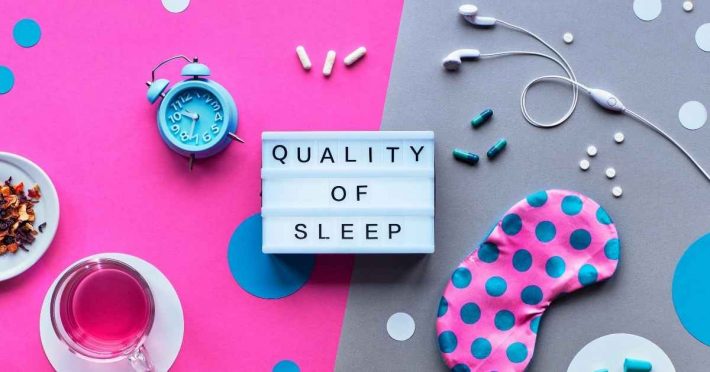We all know how important it is to get eight hours of sleep every night. But how many of us make it a priority? We prioritize everything else over having a good, restful night of sleep. It can be a project in school or a presentation at work. Staying up late at night and sacrificing sleep to get work done has been often glorified. And even if we are not studying or working, staying up late watching movies or just scrolling through our social media has become a norm. Many of us are living in a “sleep debt” so massive, we have completely forgotten what it feels like to be truly well-rested.
 But, how many hours of sleep does the average person require?
But, how many hours of sleep does the average person require?
While eight hours of sleep is the recommended amount, the actual amount of sleep ideal for an individual varies from person to person. Several external factors affect a person’s life and as such a particular number of hours for a certain age group is a bit of a generalization of very unique needs.
While many factors dictate the required hours of sleep, here are a few of the factors that you should consider
- How active is your lifestyle?
- With the current hours of sleep, do you wake up energized to take on the new day?
- Are you facing any health issues?
- Do you feel groggy and drowsy throughout the day?
- How much caffeine do you intake to get through the day?
- Are you facing any sleep issues?
Other than these common factors, ageing, pregnancy, previous sleep debt, and quality of sleep also play a vital role in the sleep pattern of any individual.
Only when you ask yourselves the above questions, you get the number of hours that work best for you. It is a sort of trial and error that you need to experiment with before concluding.
But as a rule of thumb, experts recommend the following number of hours of sleep for different age groups:
- Newborn babies (0-3M) – 14 to 17 hours
- Infants (4-11M) – 12 to 15 hours
- Toddlers (1-2Y) – 11 to 14 hours
- Preschoolers (3-5Y) – 10 to 13 hours
- School going kids (6-13Y) – 9 to 11 hours
- Teenagers (14-19Y) – 8 to 10 hours
- Adults (20Y +) – 7 to 9 hours
Quality sleep is a “restorative” time for our bodies. While our bodies shut down a get physical rest when we sleep, our brain oversees the bodily functions and performs “maintenance” work on our bodies, essentially preparing us to face another day. For this reason, every hour of sleep is important.
Even if we do not see a noticeable difference in our day to day functions if we sleep for one less hour, it is a proven fact that it affects our ability to think and act quickly throughout the day. Prolonged deprivation of sleep can affect our cardiovascular health, mental health, immune system, and energy levels.
 Here’s why you should sleep for eight hours every night and make quality sleep a top priority
Here’s why you should sleep for eight hours every night and make quality sleep a top priority
High quality sleep improves quality of life
Even if you can “get by” on reduced hours of sleep, spending a couple of hours extra in bed will help you function optimally throughout the day. You will feel more energetic and are much likely to get more done in the day. Over time you will realize that this difference between getting by and functioning optimally plays a significant role in your overall physical and mental well-being, improves concentration, and makes you more productive. In fact, most experts recommend that getting eight hours of sleep every night helps you function to your fullest.
Avoid health risks
Chronic sleep deprivation is responsible for several fatal health risks. It can lead to obesity, diabetes, cardiovascular diseases, etc. It can also lead to a weaker immune system that leaves you more susceptible to viral and bacterial infections. It also affects your mood, if you sleep well, you will not get easily irritated and get along with people better. When you get adequate, quality sleep, you are more receptive during the day, you can think better and perform better at school or work.
 Reduces stress and anxiety
Reduces stress and anxiety
It is a well-known fact that today’s fast-paced lifestyle is one of the major reasons for increased stress levels among individuals. Stress and anxiety can lead to various other mental health disorders. Poor sleep quality and reduced hours of sleep contribute to stress levels and eventually to other mental health disorders. Adequate hours of quality sleep can help in better stress management.
Better sleep quality helps make better decisions
When you rest well, your mind and judgment have a chance to open up. With a clear mind, you can make better decisions and avoid physical injuries as well as mental duress. For example, annually, hundreds of thousands of car accidents occur due to sleepy drivers the world over.
Deep sleep improves memory
While sleep provides your body the much-needed physical rest, your brain uses this time to process, consolidate, and compartmentalize the day’s memories. If you don’t allow your brain the time to do this important work, your memory can suffer. You might lose important memories and prolonged sleep deprivation can also lead our brains to create false memories.
 In all, the quantity of sleep matters just as much as the quality of those hours
In all, the quantity of sleep matters just as much as the quality of those hours
As much as the number of hours of sleep is important, the quality of sleep that you get in those hours is just as important. It is a healthy balance between the two that makes a world of difference. There is enough evidence that backs this claim and that should be reason enough to try and aim for at least seven to eight hours of sleep every night.
Sure, there can be days when you are not in control of your sleep. But knowing what you need and creating nighttime routines that can get you back on the right track with your sleep pattern is worth the effort!






